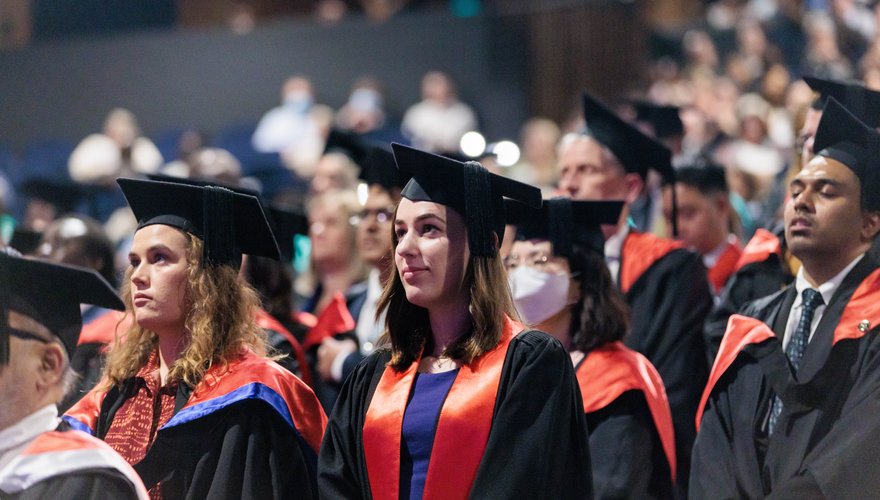First published in The Australian on 1 February, 2022
A spirit of change is stirring within the Australian higher education sector.
To paraphrase science fiction writer Isaac Asimov, continuing and inevitable change is now the dominant factor in society, and no sensible decision can be made any longer without taking into account not only the world as it is, but the world as it will be.
This question of what “will be” for Australian universities remains open as the higher education sector experiences enormous upheaval.
Covid-19 has had a drastic impact on the sector. The international student market disappeared, placing enormous pressure on entrenched and comfortable business models. Online education has become standard, calling into question the need for excessive and expensive “ivory tower” infrastructure. Golden rivers have dried up, forcing a rethink of priorities and plans. Change is upon us whether we like it or not.
Even before Covid, the Coalition government was intent on making significant higher education reforms. They wanted greater competition in the sector, flexible innovation and entrepreneurship, job-ready graduates, industry partnerships, and engagement with regional communities – arguably reforms well-suited for pandemic recovery.
This spirit of change is perhaps manifested most significantly in the recent recognition of the nation’s largest Protestant provider, Alphacrucis, as Australia’s first Pentecostal university college. I would argue that this new entrant into the sector is exactly the kind of disrupter that is needed to help the establishment awaken to new realities and opportunities.
When the Pentecostal movement first arrived on the scene in 1906, it entered into a world of dominant, institutionalised and often static denominational structures. It emphasised a new approach to the Christian experience marked by passionate worship, creative energy, and a willingness to follow the direct leading of the Holy Spirit.
The culture was shaped significantly by Jesus words in John 3:8: “The wind blows where it wishes and you hear its sound, but you don’t know where it comes from or where it goes. So it is with everyone who is born of the Spirit.”
Today, Pentecostal and charismatic Christianity is the fastest growing religious movement in the world, and numbers over 644 million adherents globally (125 million in our South East Asian region alone). The music of Hillsong church is arguably one of Australia’s most successful cultural exports. Even many of the established denominations are now incorporating Pentecostal characteristics into their own practices, such as the rapidly growing charismatic Catholic movement.
As an insider, I can attest that Pentecostal Christians are particularly attuned and suited to change in any environment. My experience of Pentecostal christianity over the past 45 years has been of continual evolution and innovation in messaging, musical style, technology, fashion, organisational structure, and business – and now there is the opportunity to bring this evolution to higher education.
An example of this spirit can be found in the Alphacrucis hub model, recently awarded $2.9m in the 2021-22 NSW budget. This model flipped the traditional approaches to teacher training as centralised, theoretical learning and instead allows teachers to do their entire four-year degrees onsite and working within local school clusters in an entirely clinical approach through tertiary/school partnerships.
This approach has not only guaranteed high-quality teachers in the regional areas where it has been established, but has also enabled new pathways for VET, postgraduate, industry and community collaboration. This globally unique model simply could not have been developed by large universities, but instead required a smaller, energetic and more flexible institution to bring it into being.
For me, it is invigorating to participate in this moment of change and reform in Australian higher education. I welcome the government’s new university college category with its emphasis on teaching quality. I am enthused about the possibility of a more level playing field for independent providers with greater competition potentially stimulating innovation in the delivery of higher education. And I am excited to be part of an evolving Australian landscape where universities and colleges can respond more effectively to the needs of neighbourhoods and nations.
A wind is certainly blowing in higher education, and with it is coming creative new academics and passionate students who can speak to the unique challenges and opportunities that are upon us. I am honoured to lead Australia’s first Pentecostal university college and look forward to raising up other leaders equipped for a rapidly changing world.
Stephen Fogarty is the president of Alphacrucis College
Advance Knowledge and Make a Lasting Impact Through Research
Are you driven by curiosity and a desire to contribute to meaningful change? At Alphacrucis University College, our research programs empower you to explore complex ideas, challenge assumptions, and develop solutions that make a real-world impact.
With a focus on interdisciplinary inquiry and academic excellence, our research opportunities span theology, education, leadership, and the arts. Guided by expert mentors, you’ll contribute to innovative scholarship that transforms communities and inspires change.
Related Courses:



